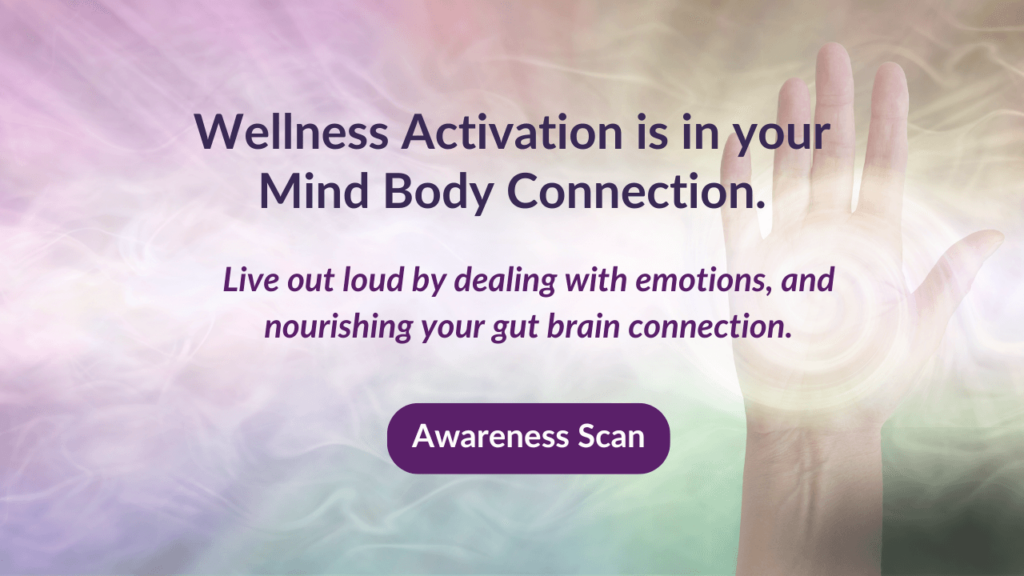
Embracing a Healthy Mindset: The Power of Belief and Growth
Can a happy mindset mean better health? We often think of happiness as a fleeting feeling, something that comes and goes based on our circumstances. But what if happiness could be more than just a reaction to the outside world? Having a happy and healthy mindset is a way of thinking and approaching life that we can cultivate on a daily basis.
The truth is—the way we perceive ourselves and our potential plays a huge role in determining our happiness. It’s also key to our health outcomes. Our mindset shapes how we respond to setbacks, how we celebrate victories, and ultimately, how we experience life itself. When we develop a mindset that thrives on growth and possibility, we open ourselves up to greater joy and fulfillment. We also cultivate greater stress resilience and support our Nervous System!
If you are struggling with your health, cultivating a healthy mindset – which leads to a happy mindset – is one practice that may change the way you feel about your situation, even just a little bit.
What Does The Word “mindset” Mean?
There are many definitions of the word mindset on the internet. The Cambridge Dictionary said it simply: a mindset is a person’s way of thinking and their opinions. It can also be defined as how your thought process works, your belief system, and how you see the world. We all see the world with a unique mindset, and it is patterned by our life experiences. We’ll discuss this more below.
Your mindset will affect what you do, how you see yourself, and how you react to others. We all have built-in biases about the world and other people in it. This mindset developed from your life experience and the messages you incorporated along the way.
Believing that you CAN change, learn, and grow is part of having a happy mindset. Letting go of negative thoughts about yourself is also part of cultivating a more positive mindset.
What Is A Healthy Mindset?
We like to think of a healthy mindset as one that helps YOU live feeling mostly in harmony with your world. In functional wellness circles, the term bio-individuality is used a lot. This means we are all built differently, from genetics to emotions. Your health and wellness needs should be personalized.
Your mindset is personalized, too. You don’t think like your best friend or your parents, and why would you? Your experience in life is different than everyone else’s. Therefore, a healthy mindset is based on what you perceive as health.
When the New Year rolls around or even when deciding to try better health habits, we rarely think about our mindset as part of the equation. We often do not think about our mind or brain health when starting new health habits. We’re thinking about diet, exercise, quitting smoking, or reducing alcohol.
With Nervous System health trending, we may be thinking of nurturing the physical components of this system without paying attention to the emotional (outside of trauma work). Don’t get us wrong, trauma work is very important! You just may not realize you need to cultivate some mindset shifts to do this work.
We want you to start thinking of a healthy and happy mindset when it comes to your health and wellness goals. A healthy mindset, or frame of mind, can mean a lot of things, from keeping a positive attitude to building resilience to stress. A positive mindset goes a long way toward almost any goal, health or otherwise.
Our mind influences all we do, how we behave, and what habits we have incorporated into our lives. If we don’t adjust our mindset, we may be at risk of not reaching our goals. More and more research is showing that our mind, our thoughts, and trauma are things that can play a role in our physical health.
Belief plays a powerful role in shaping our mental and physical health, influencing everything from stress levels to the body’s ability to heal. The connection between belief and health outcomes is backed by a growing body of research highlighting how our thoughts, attitudes, and mindset can directly impact our overall well-being. Here’s how belief—especially in one’s ability to improve, grow, or overcome challenges—relates to better health outcomes.
8 Results Of A Healthy Mindset
1. The Placebo Effect: A Clear Example of Belief’s Power
The placebo effect is perhaps the most well-known phenomenon that illustrates the power of belief. When people believe they are receiving treatment—even if it’s a sugar pill or inactive substance—they often experience real improvements in their condition. The brain’s belief in the treatment triggers actual physiological changes, like the release of endorphins or the reduction of stress hormones, that can improve symptoms and even enhance healing. This shows just how deeply belief can influence the body’s response to illness or injury.
2. Optimism and Reduced Risk of Disease
Numerous studies have found that people with an optimistic outlook tend to experience better health outcomes, including a lower risk of heart disease, stroke, and even cancer. Optimistic individuals often have better coping strategies, more robust social support, and lower stress levels—all contributing to better health. Believing that challenges can be overcome encourages resilience, linked to healthier immune function and reduced inflammation.
3. Stress and the Mind-Body Connection
Chronic stress can have a significant negative impact on health, contributing to everything from high blood pressure to a weakened Immune System. However, our belief in our ability to cope with stress—sometimes referred to as a stress mindset—can mitigate these harmful effects. Research suggests that individuals who believe stress is “good for them” or can be an opportunity for growth may experience fewer negative physical consequences, even in stressful situations. This is a testament to how a positive belief about stress can transform its impact on health.
4. Self-Efficacy and Health Behaviors
Self-efficacy is the belief in one’s ability to perform a task or behavior successfully. People who believe they can make positive changes in their health (such as exercising, eating better, or quitting smoking) are more likely to take the necessary actions to improve their health. Those with high self-efficacy are likelier to stick to health regimens, manage chronic conditions such as Lyme disease, and recover more quickly from illness or injury. Believing in your ability to achieve health goals is often the first step toward achieving them.
5. Growth Mindset and Health Resilience
A growth mindset, the belief that abilities and health outcomes can improve with effort, is particularly relevant when overcoming health challenges. People with a growth mindset approach illness, injury, or health setbacks as temporary and manageable rather than fixed limitations. This mindset fosters resilience, helping individuals stay motivated through difficulties, adapt to challenges, and find new ways to improve their well-being. In contrast, a fixed mindset—the belief that one’s abilities or health status are permanent—can lead to a sense of helplessness and resignation, making it harder to pursue healthier behaviors or seek effective treatments.
6. Social Support and Belief in Community
Belief in the power of social connections is another important factor in health outcomes. Studies have shown that individuals who believe in the benefits of social support—whether from family, friends, or communities—tend to have better mental health and lower mortality rates. The belief that one is not alone in their struggles and that one can reach out for help is linked to lower levels of anxiety and depression and better long-term health outcomes. These social connections can also reduce feelings of isolation, often associated with poorer health outcomes.
7. Mind-Body Techniques: Meditation and Belief
Mindfulness, meditation, and other mind-body practices demonstrate how belief impacts health. People who believe in the effectiveness of these practices often report lower levels of stress, anxiety, and pain. The belief that you can achieve relaxation through meditation, for instance, can help activate the parasympathetic nervous system, reducing heart rate and promoting healing. Similarly, positive affirmations and visualization techniques can reduce chronic pain symptoms, lower blood pressure, and improve mental clarity by fostering a belief in the body’s ability to heal and cope.
8. Faith and Healing
For some individuals, belief in a higher power or spiritual faith can play a central role in their health and well-being. Research suggests that those who have strong religious or spiritual beliefs often report better mental health, lower levels of anxiety, and higher life satisfaction. Spiritual practices such as prayer, community worship, and rituals can provide a sense of purpose, reduce stress, and promote healing. Belief in something greater than oneself can foster hope and meaning, both associated with improved health outcomes.

Cultivating a Growth Mindset vs. A Fixed Mindset.
Carol Dweck, PhD, author of Mindset, The New Psychology of Success, and TedX speaker, researches and teaches mindset. She states that mindset forms in childhood through praising and labeling.
She breaks down praising in the form of personal or process praise. Personal praise looks like, “Wow, you’re so smart.” Have you heard this about yourself or someone else? If you believe that “smart” is something you are born with, you may have a fixed mindset. This can limit you in thinking there is no flexibility in this. If you have been labeled as “smart,” then you may feel there is no room for improvement or that you can’t always measure up.
Process praise is different. This focuses on the journey along the way. When you focus on how your child set study hours, kept to them, and tried different ways to study along their journey to A, B, or even a C, the process is what becomes the learning experience, not the goal.
See the difference?
Dweck has pioneered the theory of growth and fixed mindsets. If you have a growth mindset, you believe you can learn new things, try different ways to achieve something, and build resiliency by attempting things. If you have a fixed mindset, you believe you are born with things that cannot be changed. You believe that you are either smart or not. Capable or not. This mindset can hold you back from reaching your goals or leading a more joyous life.
Those with a fixed mindset may give up more easily on things than those with a growth mindset. A happy mindset may not seem within reach when you think in a fixed fashion.
Do you have a growth mindset or a fixed mindset?
Take a peek at the following statements:
- I am who I am.
- That’s way over my head.
- Why try? I’ll never get …. (that job, that relationship, better health).
- I’m a work in progress.
- I’m willing to learn.
- That looks hard, but I’ll give it a go.
Which one or two relate to YOU? Bullets 1-3 are of a fixed mindset, while bullets 3-6 are of a growth mindset. If you identify more with a fixed mindset, don’t worry! We’ve got some tips to shift your thoughts and work on a growth vs. fixed mindset!
3 Tips For A Happy Mindset.
1. Tune in to your thoughts.
Can you identify running themes that go through your mind? Do you talk negatively to yourself regularly? Your thoughts give all the information you need to identify and change your mindset. Tune in to them without judgment and get close up.
2. See the value in the journey, not the destination.
Would focusing on the journey to change be easier if you focused on attempts and mistakes rather than the goal? Making mistakes happens to all of us. There are lessons in these “mistakes.” Maybe we should relabel them as such.
3. Support your gut health.
Low mood, anxiety, and depression are clearly linked to gut health and the microbiome. Understanding the link between the gut-brain is critical to a happy mindset. The gut influences the brain through the community of beneficial bacteria that live in the digestive tract. These bacteria produce chemicals that can influence the brain. For example, certain species of bacteria can produce neurotransmitters, chemicals that the brain uses for communication.
Paying attention to your thoughts and words is part of developing a happy mindset. Positive self-talk is also part of a healthy and happy mindset. So is self–compassion, which comes in handy on the days you may not eat as nutritiously as you like or you revert back to old ways of being.
Understanding how you arrived at your mindset is another facet of shifting from fixed to growth mindset values. When we developed the Awareness Scan, we knew that awareness is a key to change.
When you see it, you can change it. Bring an open heart to your mindset and your health journey. You never know where it will lead you.

